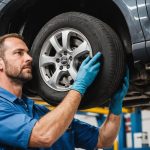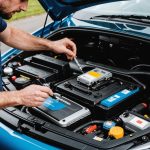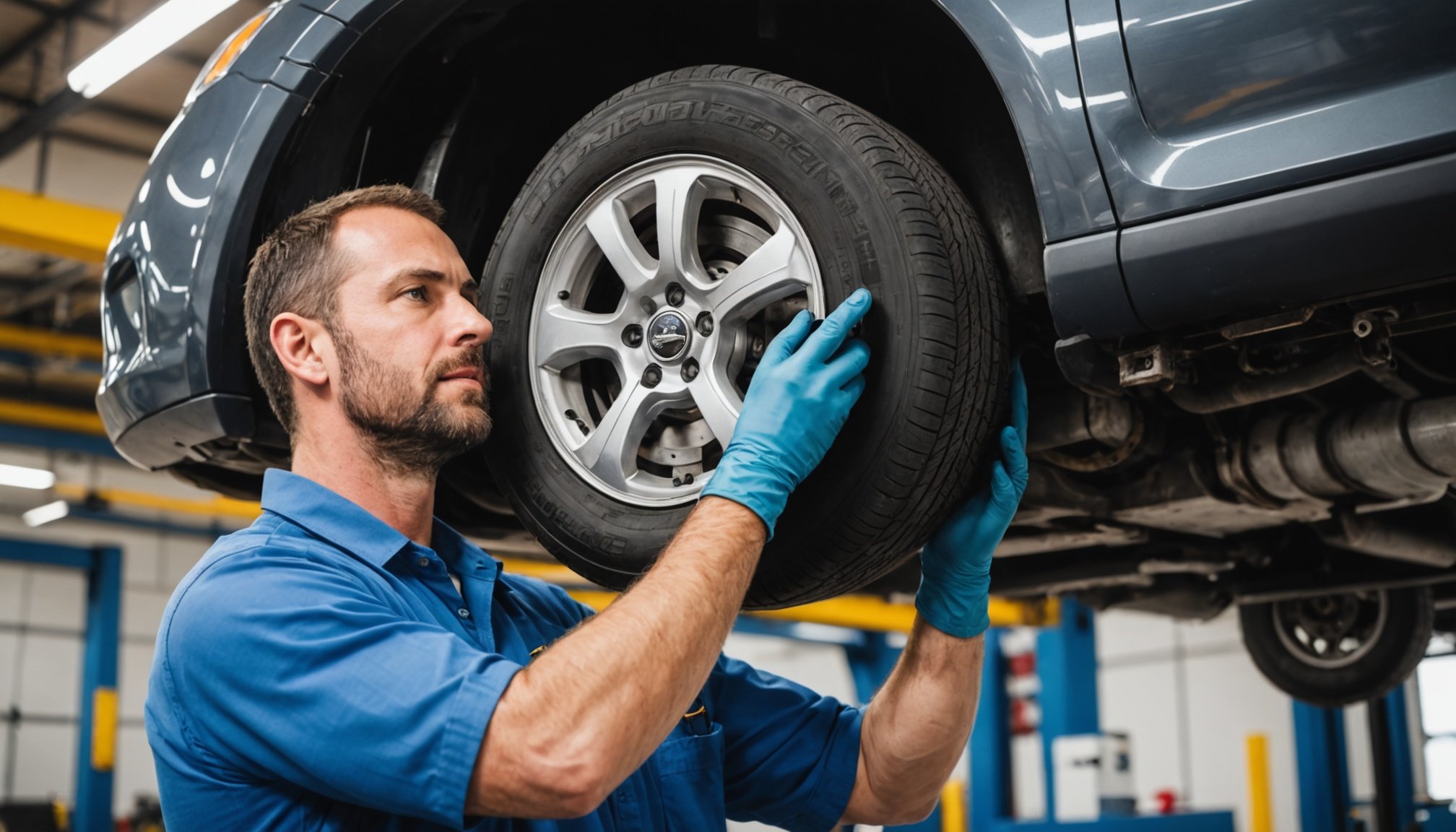Owning a vehicle comes with a variety of responsibilities, and one of the most crucial is maintenance. Regular vehicle maintenance not only enhances the longevity of your car but also plays a significant role in ensuring your safety while driving. Imagine your vehicle as a complex machine, where each part—be it the engine, tires, or brakes—works in harmony to provide a safe and reliable driving experience. By committing to routine inspections and timely repairs, you can prevent unexpected breakdowns and reduce the risk of accidents. In this article, we will explore how regular maintenance contributes to your vehicle’s overall safety performance and highlight the essential maintenance tasks that every vehicle owner should prioritize.
Understanding the Importance of Regular Maintenance
Regular maintenance is not merely a suggestion; it is a necessity for anyone who drives a vehicle. Many people underestimate the importance of routine inspections and repairs, but neglecting these tasks can lead to severe consequences. A vehicle that is poorly maintained is more prone to breakdowns, which can be both dangerous and costly. Keeping your car in top condition involves understanding the various elements that contribute to its performance and safety.
Also to see : What are the most common causes of car accidents and how can I prevent them?
One of the primary reasons for regular maintenance is to catch issues before they escalate. For instance, a small problem with your engine can quickly turn into a major repair if left unaddressed. Regular checks allow you to identify potential hazards, such as worn-out brake pads or low tire pressure, which can significantly affect your ability to stop safely.
In addition, regular maintenance can improve your vehicle’s overall performance. A well-tuned engine runs more efficiently, which not only enhances fuel economy but also ensures that your car responds better during emergencies. If your vehicle is in peak condition, you will be better equipped to handle sudden stops or sharp turns, which can prevent accidents.
This might interest you : What should I know about child car seat safety regulations in the UK?
Furthermore, many vehicle manufacturers recommend specific maintenance schedules for their models. Adhering to these recommendations helps maintain warranties and ensures that your vehicle remains reliable. Regular inspections also provide you with an opportunity to consult with a professional mechanic who can offer valuable insights into your vehicle’s health. Thus, taking vehicle maintenance seriously is not merely about keeping your car running; it is fundamentally about ensuring your safety and that of others on the road.
Key Areas of Vehicle Maintenance
When discussing vehicle maintenance, certain key areas require your attention to enhance safety and performance. Understanding these areas can help you prioritize your maintenance routine effectively.
Engine Maintenance: The engine is the heart of your vehicle. Regular oil changes, coolant checks, and air filter replacements can help ensure your engine runs smoothly. Dirty oil can lead to increased friction and overheating, potentially causing severe engine damage. It’s advisable to follow your vehicle’s service manual for oil change intervals, as this can keep your engine healthy and improve performance.
Tires: Your vehicle’s tires are critical for maintaining traction and stability on the road. Regularly checking tire pressure can prevent blowouts and ensure better fuel efficiency. Additionally, rotating your tires according to your manufacturer’s recommendations can promote even wear and extend their lifespan. Worn or improperly inflated tires can impair your vehicle’s handling, especially in adverse weather conditions, making routine checks essential.
Brakes: When it comes to safety, your vehicle’s brakes are paramount. Over time, brake pads wear down and can lose their effectiveness. Regular inspections can help identify when it’s time for a replacement. Pay attention to any unusual noises when braking, which could indicate that repairs are needed. A well-maintained braking system is essential for preventing accidents.
Battery: The battery is often overlooked, yet it is crucial for starting your vehicle and powering essential electronic systems. Regular checks of the battery terminals for corrosion and ensuring that the battery is charged can save you from unexpected failures. Replacing a dying battery before it fails can prevent you from being stranded.
By focusing on these key areas during your maintenance routine, you can help ensure your vehicle operates safely and efficiently. Regular attention to these components not only enhances your vehicle’s performance but also significantly reduces the likelihood of accidents.
The Role of Routine Inspections
Routine inspections are a vital aspect of vehicle maintenance that cannot be overlooked. These inspections serve as a preventive measure, allowing you to catch potential issues before they lead to costly repairs or hazardous situations. Understanding the importance of regular inspections can empower you to take charge of your vehicle’s maintenance.
A comprehensive vehicle inspection typically includes checking the engine, transmission, brakes, tires, and all essential fluids. Mechanics are trained to notice signs of wear or impending failure that you might miss. For instance, a mechanic may detect a minor oil leak that, if left unchecked, could lead to more significant engine damage.
Regular inspections also help you stay up-to-date with your vehicle’s overall condition. They allow you to keep track of any maintenance tasks that need to be performed, such as fluid changes or part replacements. A well-documented maintenance history can also be beneficial when it comes to selling your vehicle, as potential buyers often look for evidence of good care.
Moreover, many states require periodic vehicle inspections to ensure that all vehicles on the road meet safety and emissions standards. Compliance with these regulations is not only mandatory but also promotes road safety for everyone. By keeping your vehicle in line with inspection requirements, you contribute to a safer driving environment for all road users.
In summary, routine inspections play a critical role in vehicle maintenance. They help detect issues early, allow for proper documentation, and ensure compliance with safety regulations. Investing time and resources in regular inspections can significantly enhance your vehicle’s safety performance and reliability.
The Financial Benefits of Regular Maintenance
While maintaining your vehicle is often seen as an expense, it can lead to significant long-term savings. Understanding the financial benefits of regular maintenance can motivate you to commit to a consistent maintenance schedule.
One of the most immediate financial benefits is the reduction in repair costs. As mentioned earlier, addressing minor issues during routine maintenance can prevent them from escalating into major problems that require expensive repairs. For example, replacing worn brake pads is far less costly than repairing a damaged braking system.
Additionally, regular maintenance can improve your vehicle’s fuel efficiency. A well-maintained engine operates more efficiently, leading to better gas mileage. This means you will spend less on fuel, effectively offsetting some of the costs associated with maintenance. Regular tire checks and rotations can also enhance fuel efficiency, as properly inflated tires reduce rolling resistance.
Furthermore, maintaining your vehicle can lead to a higher resale value. A car that has a documented history of regular maintenance is often more appealing to potential buyers. They are more likely to pay a premium for a vehicle that has been well cared for, knowing that it is less likely to incur expensive repairs in the near future.
Lastly, regular maintenance contributes to the overall longevity of your vehicle. A vehicle that is routinely serviced can last significantly longer than one that is neglected. This means you can delay the expense of purchasing a new vehicle, allowing you to make the most out of your current investment.
In conclusion, while the costs of maintenance may seem burdensome initially, the long-term financial benefits are significant. From saving on repairs and fuel costs to enhancing resale value, regular vehicle maintenance proves to be a wise investment for any vehicle owner.
In summary, the importance of regular vehicle maintenance cannot be overstated. It plays a critical role in ensuring not only the performance of your vehicle but also the safety of everyone on the road. By prioritizing essential maintenance tasks such as checking the engine, tires, brakes, and battery, you not only enhance your car’s reliability but also significantly reduce the risk of accidents.
Routine inspections serve as a preventive measure that can catch potential problems early on, saving you from costly repairs and dangerous situations. Moreover, the financial benefits of regular maintenance can help you manage your vehicle costs more effectively, proving that maintaining your vehicle is an investment in both safety and economic efficiency.
By adopting a proactive approach to vehicle maintenance, you ensure a safer driving experience for yourself and others while prolonging the life of your vehicle. Make it a habit to stay committed to regular maintenance and inspections, and you will reap the rewards in terms of safety, performance, and financial savings.











